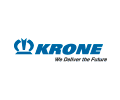Recommendations for improvements to the London Lorry Control Scheme have been agreed by London Councils’ Transport and Environment Committee (TEC).
 A major review of the London Lorry Control Scheme has been taking place since late last year. After months of engagement with stakeholders, TEC has now given its seal of approval to the review’s findings and proposals for future work.
A major review of the London Lorry Control Scheme has been taking place since late last year. After months of engagement with stakeholders, TEC has now given its seal of approval to the review’s findings and proposals for future work.
The London Lorry Control Scheme is managed by London Councils on behalf of London’s boroughs, and it controls the routes that heavy goods vehicles (HGVs) over 18 tonnes can use at night and at weekends. The scheme has been in place since the mid-1980s to help reduce noise pollution in residential areas during the night.
The review aimed to ensure that the scheme continues to provide essential environmental benefits and protection for Londoners and is integrated with other existing and emerging freight and environmental management initiatives being led by the Mayor and London boroughs.
Cllr Julian Bell, Chair of London Councils’ TEC Committee, said:
“The movement of freight is vital to the success of London’s growing population and economy but as demand for goods and services grow, so does the number of lorries on our roads. The London Lorry Control Scheme has played an important role in reducing the impact of freight movements on the lives of Londoners for over 30 years. The review’s findings will help us ensure the freight industry can meet the challenges it faces while continuing to help Londoners get a good nights’ sleep.”
Key recommendations of the London Lorry Control Scheme review:
– Raise awareness of the London Lorry Control Scheme’s purpose, benefits and rules among key stakeholders such as the freight industry, London boroughs, residents’ groups, businesses and international freight organisations. This will involve updating the scheme’s website and online portal, as well as exploring new technologies to make it easier for freight operators to plan and follow compliant routes.
– Develop “noise standards” for vehicle and infrastructure design that properly reflect how existing and new technologies could improve the operation of the scheme and the restrictions that apply to vehicles.
– Trial the use of CCTV and Automatic Number Plate Recognition (ANPR) enforcement to improve compliance.
– Reassess the scheme’s restrictions, such as routes, hours of control, the weight limit, traffic signs and vehicle exemptions, particularly in line with the advancements in vehicle design and serving the needs and demands of London’s growing 24/7 economy.
– Update online systems and processes to improve the day-to-day administration of the scheme.
A range of stakeholders, including those representing businesses, London residents, freight operators, London boroughs, Transport for London and the Greater London Authority, have been involved in the review and have helped to identify a number of areas for possible changes and improvements to the scheme.
Denise Beedell, Federation of Small Businesses (FSB) Development Manager, Greater London, said:
“The FSB is pleased to have been involved with the London Lorry Control Scheme Review. Since the start of the LLCS in 1985, this first major review has been long overdue. The economic landscape of London today is very different from 40 years ago, so it is right that the scheme is reviewed to ensure fairness to all including small and micro businesses who are the driving force behind our capital’s economic prosperity.
“FSB supports the recommendations made by the Steering and Working Group members including making better use of technology, updating mapping tools, developing a better communications strategy to improve understanding of the system and wider transport industry engagement in and beyond London. In the longer term, we are pleased to see that a full review of the Excluded Route Network has been recommended as well as exploration of vehicle noise standards and exemptions for quiet fleets.”


.gif?rand=3629)







